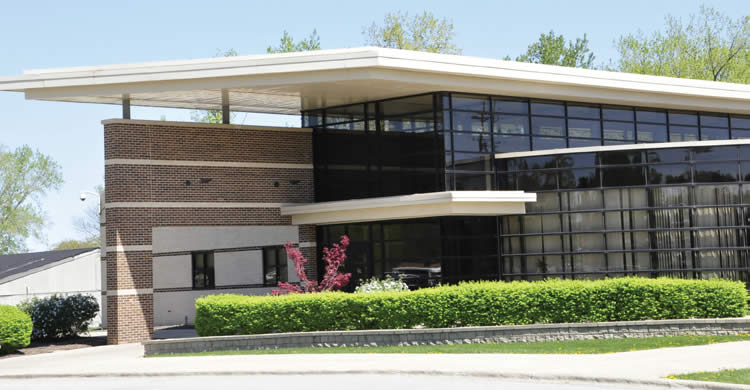
Election guru and associate teaching professor at DePaul University, Nick Kachiroubas, crunches data and numbers to help make the presidential primary election season easier to comprehend. Kachiroubas compiled a free informational guide to the 2016 presidential election process. (Photo by Jamie Moncrief)
CHICAGO — (ENEWSPF)–December 11, 2015. Feb. 1, 2016, marks the official start of the U.S. presidential primary election season and even seasoned voters and political wonks find the long, complex process leading up to the election daunting — and confusing at times. Not to worry. Nick Kachiroubas, an associate teaching professor at DePaul University, whose research focuses on leadership and the presidency, has compiled an informational guide to the 2016 presidential election process.
Free and available on the Internet to download, the guide explains the differences of a primary caucus and a primary election. What happens to committed delegates after their candidate withdraws from the race? The guide has the answer. And, the perennial question of how does the Electoral College work is also covered in the guide.
“I believe it’s important to be reminded of how the process works. I have found that many people have not had the opportunity to understand the specific party nomination process or if they have been involved only know one party’s process,” said Kachiroubas, who has a doctorate in leadership for the advancement of learning and service and has worked for the U.S. House of Representatives, Illinois General Assembly and the Office of the Illinois Lieutenant Governor.
“There are several individual processes that make up the overall presidential election process,” noted Kachiroubas. “I wanted to provide a resource that would explain all of these pieces in one central document that an interested person could read or reference,” he said.
The election guide breaks down the process in three sections: primary season, national nominating conventions and the general election. It also includes a list of reference hyperlinks; key dates, including the primary caucus and election dates; and the 2016 electoral vote allocation.
The focus of the section covering the primary season explains that this segment in the process is to get a candidate’s committed delegates elected during state primaries to officially nominate the individual at the political party’s national nominating convention. Kachiroubas writes about types of delegates elected to national nominating conventions; explains how primary caucuses differ from primary elections; gives background for variation of dates of primary caucuses and elections; and provides information about how national political party.
The section on national nominating conventions — July 18-21 for the Republican National Convention and July 25-28 for the Democratic National Convention — explains the selection official nomination of a party’s candidate for president. Kachiroubas discusses what happens to committed delegates after their candidate withdraws from the race; the process of a brokered convention should a candidate not have a majority of committed delegate votes; the reason national nominating conventions exist; and the business that is conducted at the conventions.
The section on the general election explains how on voters elect slates of Electoral College members who will cast ballots to officially elect the president. Kachiroubas provides information about the Electoral College and presidential electors; the winner-take-all provision; the congressional district allocation provision for Maine and Nebraska; the impact of the Electoral College process on the presidential campaign; and the actual constitutional election process.
It is Kachiroubas’ hope that the guide will provide information and details to the many individual steps that make up the presidential election process.
“I want voters to understand that when it comes to the primary season, the most important thing for a candidate to get his or her delegates elected,” noted Kachiroubas.
To access the election guide visit http://bit.ly/_election_guide.
Source: www.depaul.edu








